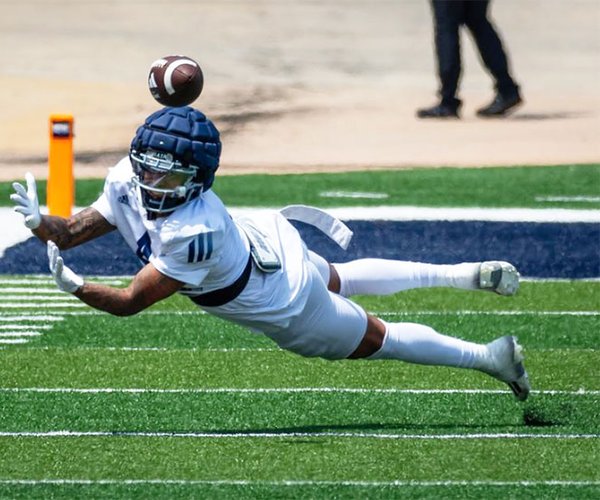Few things better sum up the NFL's self-serving past efforts on concussion research than a scene from the movie "Thank You for Smoking."
Tobacco industry spokesman Nick Naylor — played by actor Aaron Eckhart — is talking to a class of kids when one says:
"My mommy says smoking kills."
"Oh, is your mommy a doctor?" Naylor asks.
"No," the child replies.
"A scientific researcher of some kind?"
"No."
"Well, then," Naylor concludes, "she's hardly a credible expert, is she?"
Just when you thought the NFL was done playing those kind of games — voila! — along comes yet another.
Last week, it took a big step forward when Jeff Miller, the league's senior vice president for health and safety, finally acknowledged during a congressional round-table that the league believes there is a link between concussions and CTE, something scientists have believed for years.
But this week the NFL took a big step back, getting into a debate with the New York Times over concussion research stretching back two decades that the newspaper's investigation concluded was "far more flawed than previously known." After watching the back-and-forth, you can't help feel that if the NFL was as diligent about the original research as it has been in pushing back, this would never have been a problem in the first place.
The newspaper reported this week that the same committee formed by the NFL to look at concussions in the wake of several high-profile retirements two decades ago used erroneous methods to calculate concussion rates, then published those in research papers and "stood by" those papers for the past 13 years. Specifically, the committee omitted more than 100 diagnosed concussions during the reporting period 1996-2001, including some suffered by its biggest stars like quarterbacks Troy Aikman and Steve Young, the newspaper said.
"If somebody made a human error or somebody assumed the data was absolutely correct and didn't question it, well, we screwed up," Dr. Joseph Waeckerle told the Times.
Waeckerle also said he was unaware of the omissions. But, he added, "If we found it wasn't accurate and still used it, that's not a screw-up; that's a lie."
Ignoring the old adage about "Never pick a fight with someone who buys ink by the barrel," the NFL's response consumed almost as much space as the Times story.
The league's statement Thursday ran over 1,000 words, slammed the newspaper for "ignoring" more than 50 pages of information it provided "demonstrating the facts," and zeroed in on six specific complaints. What apparently chafed the NFL's PR machine most was the newspaper noting that, "Some retired players have likened the NFL's handling of its health crisis to that of the tobacco industry ... ."
In all, five of the NFL's six complaints dealt with what the Times characterized as "a long relationship between two businesses with little in common beyond the health risks associated with their products. ... Still, the records show that the two businesses shared lobbyists, lawyers and consultants. Personal correspondence underscored their friendships, including dinner invitations and a request for lobbying advice."
An NFL lawyer told the newspaper in a letter that "it had no connection to the tobacco industry."
Read the Times story here and the NFL statement here and decide for yourself.
Those who've tracked the NFL's past assertions on concussion-related issues may find some of its current arguments hard to swallow. A personal favorite is the league's contention that it hired Dorothy C. Mitchell, who wound up providing legal oversight to the concussion committee that issued the research papers, without any knowledge of her work on behalf of Big Tobacco.
It's possible, to be sure. Mitchell previously was an associate at the law firm Covington & Burling, which did plenty of work for the NFL. She'd also handled employment disputes for the league before moving over to the concussion committee.
What sounds implausible though, considering that Mitchell's defense of the Tobacco Institute, the industry trade group, was a highlight in her legal career up to that point, was the NFL saying that those who hired and supervised her knew none of that "until they learned of this proposed story."
Case closed.





